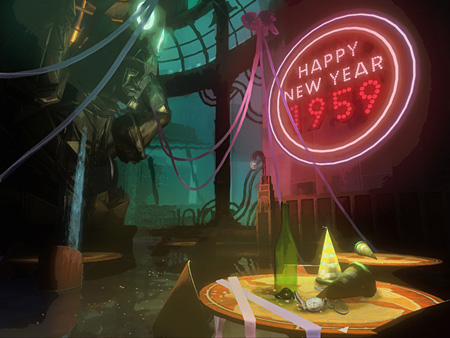Coffee-Table-Book Films.
(In a nutshell: Those are films that have very little plot, lots of visual appeal, and build an intriguing world.)
 Perhaps the best known director/auteur of these films, who took the idea to an almost absurd level, was
Perhaps the best known director/auteur of these films, who took the idea to an almost absurd level, wasJacques Tati. With plots like "man goes to office building to do some paperwork...then goes to dinner" or "P.R. promoter takes new car to car show...then misses it" Tati's films are about looking at a cool world and enjoying it's daily progressions. (Worth noting: 1992's "Cool World" is not a Coffee-Table-Book Film, because it's so plot focussed on plot - despite being technically and æstheticly clever.) Stanley Kubrick's later films begin to straddle this line, as does George Lucas' THX-1138. They are mood pieces, but still have their plots in the foreground. "Himmel Uber Berlin" (Wings of Desire) also seems to be right on this line.

There are two things worth noting about Coffee-Table-Book Films. First, they prefigure some of the video games that followed. They invite the individual audience member to explore the world. Myst, Riven and to a much lesser extent Grand Theft Auto and Bioshock have their created worlds in the foreground. The temptation to craft a plot around a first-person-shooter is pretty strong though. And both Grand Theft Auto and Bioshock quickly become about a (contrived) forward narrative.

The second idea, more germane to the topic of media hoaxes and epistemology, it the idea that Coffee-Table-Book Films simultaneously and paradoxically draw the audience's attention to the fact that the film is a technical contrivance, but almost immediately invite the suspension of disbelief in order to explore and enjoy the world that's being both represented and created. There are threads of theatricality to this discussion as well.
While there are many more phenomenological discussions that can be had about these Coffee-Table-Book Films, I'd like to start a list of examples. From this list, I'll create a follow-up posting about the interaction of world-building, plot reduction, audience-contriavance and other connections.
(Please give me more suggestions of films that are and are not Coffee-Table-Book Films. Again, the definition is evolving at this point, so anything goes)
Jacques Tati
- Traffic
- Playtime
Peter Greenaway
- Zed & Two Naughts
- Drowning By Numbers
- Propsero's Books
Matthew Barney
- Cremaster Films
- Drawing Restraint 9
Alejandro Jorodowsky
Stanley Kubrick
Gottfried Reggio
Fredirico Fellini
...and...?